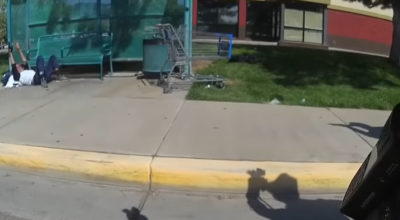
Terry Rainwaters and Hunter Hollingsworth own rural properties along the Big Sandy River in Camden, Tenn.
Their properties are their sanctuaries. Terry lives on his property, and both have used their land to farm, camp, and hunt (with state-issued hunting licenses).
Neither property is open to the public, and both have “No Trespassing” signs on their front gates.
But for years, state officials have treated Terry’s and Hunter’s private lands—along with others’ in the area—as if they were public property. Now, Terry and Hunter are suing to protect Tennesseans’ property and privacy rights.
When Hunter discovered a surveillance camera that TWRA installed in one of his trees, he took it home, not knowing where it came from. Its pictures showed officers installing the camera and monitoring him and his friends. And on other occasions, Hunter has seen TWRA officers wandering around his property without permission.
When Hunter told one officer that he didn’t have permission to barge onto his land, the officer replied: “When you bought your hunting license you invited me.”
Officers from the Tennessee Wildlife Resources Agency (TWRA) routinely enter private land on a whim to search for potential hunting violations.
They don’t have probable cause to believe a crime is being committed, and they don’t ask permission from either property owners or a court.
Instead, they trespass, wander around as they please, and take photos and videos. They even install cameras so they can keep watching the properties 24 hours a day, seven days a week.
TWRA thinks it can get away with such creepy surveillance because the U.S. Supreme Court wrongly held that the U.S. Constitution’s protections against unreasonable searches don’t apply to “open fields.”
But the Tennessee Constitution prohibits state officials from barging in whenever they wish. That’s why Terry and Hunter have teamed up with the Institute for Justice (IJ) to sue TWRA in Tennessee state court: to vindicate the right of all Tennesseans to be free from unconstitutional searches.
Source: Institute for Justice


